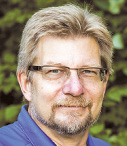“I ask that my name be left silent and people not call themselves Lutheran, but rather Christians. Who is Luther? The doctrine is not mine. I have been crucified for no one.” —Martin Luther, “Admonition Against Insurrection,” 1522
Regardless of Luther’s opinion, his name has stuck. Some eighty million individuals worldwide claim the name of Lutheran today. Without getting into the argument of whether some of these people should be called Lutherans or not, we need to focus on why we are called by this name.
At our Immanuel Lutheran College and Seminary, several invaluable courses are offered in “Lutheran symbolics”; that is, the study of the Lutheran Confessions. This in-depth examination of the Book of Concord makes clear the teachings of the Lutheran church. Some parts of the Book of Concord are very familiar and are used frequently. Other selections may sound familiar, but details escape us. Still others may not be familiar at all.

What’s in the Book of Concord?
The Three Universal Creeds—Apostles’, Nicene, Athanasian
These three creeds are used regularly in our worship and serve as a declaration of our basic Christian faith as it is set forth in Scriptures. The Book of Concord opens with these ancient creeds to establish their acceptance among Lutheran protestants.
The Augsburg Confession and Its Apology (1530-1531)
Emperor Charles V wanted a united military front to go against the Turks. He felt he needed a united religious front first. He asked the Protestants (the name Lutheran is not used in the Book of Concord) to explain their teachings. Their beliefs are stated in the “Augsburg Confession.” The “Apology” [an Apology is a defense and explanation of doctrine], enlarges upon and clarifies the scriptural reasons for those beliefs.
The Smalcald Articles (1529)
Luther was directed to “prepare a statement indicating the articles of faith in which concessions could be made for the sake of peace, and the articles in which no concessions could be made.”
The Treatise on the Power and Primacy of the Pope (1537)
The Protestant theologians felt that this treatise was necessary to show their disagreement with the papacy, but more importantly to show the disagreement between the papacy and the Scriptures.
Luther’s Small and Large Catechisms
The Small Catechism is a most beloved and familiar handbook of Christian questions and answers supported by Scripture. It was intended to be used by the head of the household to teach all members of the family, especially the young or new to the faith.
The Large Catechism is directed toward clergy and the head of the household. In his preface, Luther implores the clergy not to “imagine they have learned these parts of the Catechism perfectly, or at least sufficiently,” but rather to continue to study, meditate, and discuss what the Word of God means. It’s great advice for any who would call themselves Christian/Lutheran.
The Formula of Concord (1577)
After Luther’s death in 1546, many controversies arose, threatening to split the Lutherans. These documents list statements of belief as well as refutation of statements of the false teachers.
So why are we named after a “poor stinking bag of worms” like Martin Luther (his words, not mine)? Lutherans have historically held that the Holy Scriptures are the sole divine source and norm of all Christian doctrine. Neither church tradition nor church policy can or should claim equal or superior authority to that of God’s Word. We hold to the Lutheran Confessions in that we believe they give a correct and faithful exposition of the Scriptures. The Lutheran Confessions are Christian Confessions faithful to the doctrine entrusted to us by our Savior.
Whether you have never read the Book of Concord, or it has been a long time, I would encourage you to add a copy to your Bible study. It may prove a challenge to you to get into “the meat” of Scriptures (Hebrews 5:13-14), and deepen your understanding of God’s Word and your Christian/Lutheran heritage.
is a retired teacher. He lives in Fond du Lac, Wisconsin.


